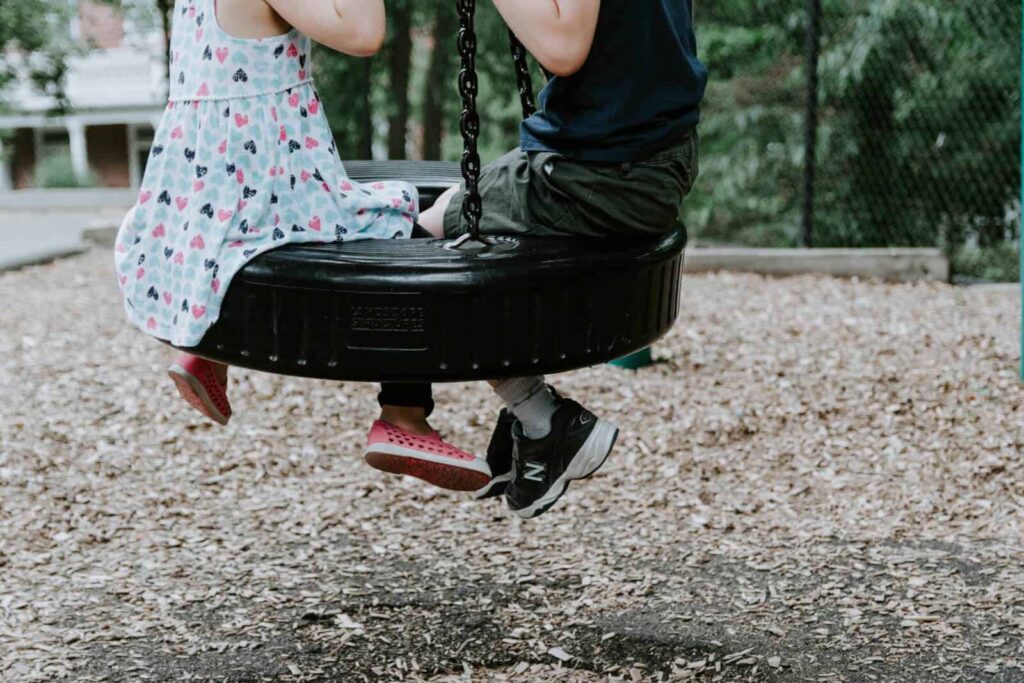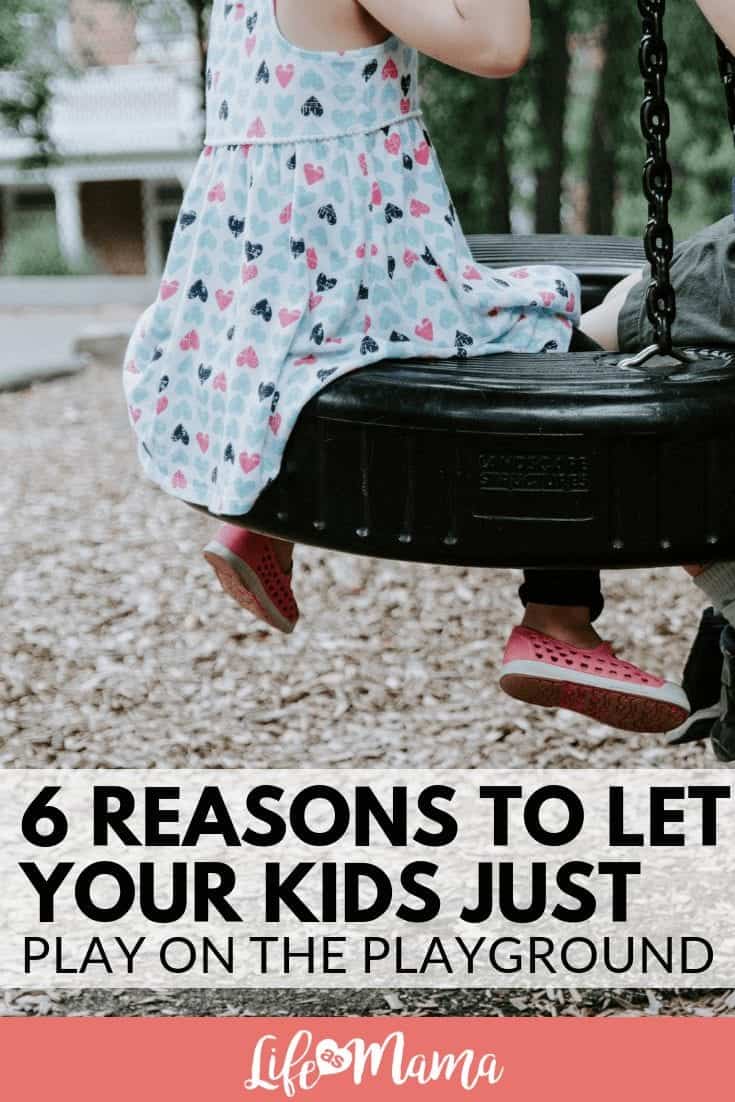When you think about your childhood, do you remember running around in the schoolyard, climbing trees and playing pretend? Play is so vital to children that it’s become almost synonymous with being a kid. Unfortunately, unstructured playtime in schools has declined in recent years, especially for students in cities and with lower-income backgrounds. Some schools don’t include any recess time in the typical school day.
Though school administrators often justify a lack of recess by pointing to more rigorous academic activities, is cutting playtime really a good way to help kids succeed? Probably not. Research suggests that unstructured play on playgrounds and in other environments is as important to a child’s development as memorizing the multiples of nine — likely more important, in fact, as many parents might agree.
Your kids need to play in order to grow and learn. Even if they get plenty of playtime during the school day, it can’t hurt to encourage play in the evenings and on weekends too. The benefits for parents and kids are enormous. Here are just a few reasons you should take your kids to play on the playground.
1. Playgrounds Teach Motor Skills
When kids climb around on the playground, swing from monkey bars and spin around on the tire swing, they’re not just being silly or showing off for their friends. They’re also acquiring the motor skills they need to navigate the world around them.
One Italian study found that playing on a playground greatly increased certain gross motor skills, including balance, in a group of kindergarten kids. By providing challenge and practice moving in new ways, kids can learn about their body’s positioning in space and hone their ability to move in different ways.
These increased motor skills can help kids navigate the adult world and make physical activity easier. And wouldn’t we all like to have an easier time in gym class?
2. Playgrounds Build Active Lifestyles
Taking your kids to the playground regularly could also help them acquire an active lifestyle. Practice with physical play in childhood can foster a lifelong love of activity, making kids more likely to continue exercise into adulthood.
By encouraging physical activity, play on the playground can help improve kids’ health and lower risk for certain health issues such as obesity and heart disease. Increased active play is especially important today, as children ages six to 11 spend more than 40 percent of their time in sedentary activities like watching television and sitting in a classroom.
3. Playtime Improves Social Skills
When kids play with each other without guidance or instructions from an adult, they’re free to develop communication and social skills. They learn to share, take turns, work together, make new friends and resolve playground conflicts like the classic “you cheated/no I didn’t” paradox.
Research also suggests that play builds social skills. In one animal study, for example, researchers found that even short sessions of play made the brain more pro-social. Taking your kids to a public playground could help them navigate social situations as they learn how great it feels to get along with others.
4. Adequate Play Increases Focus
One more academic benefit of playtime comes with its ability to increase focus in the classroom. In order to develop the balance system, kids need plenty of rough-and-tumble play. In turn, the balance system affects a child’s ability to focus well.
Kids that play dynamically on a playground — spinning, turning upside down and generally rolling around — develop their balance system faster and focus more easily, which allows them to learn more efficiently and succeed in the classroom. So more playtime could actually lead to better academic results.
5. Playgrounds Inspire Creativity
If you ever pretended a jungle gym was a spaceship, you know that playgrounds inspire creativity. With no guidance from adults, children are free to experience a playground however they want. They can make up games using their imagination, try equipment in different orders and come up new systems to play with others.
When you let your kids experience play in their own way, they get to practice creativity and independence, which can help them find their individuality and begin to take initiative.
6. They’re Built to Be Fun
Finally, in addition to all the benefits playgrounds offer, they’re just fun — for kids and parents! Playgrounds are built to provide entertainment to kids in a variety of ways. As a result, kids get to have fun and parents get to sit back and relax. Nothing beats watching your kid grow up laughing, smiling and exploring.
Get More Out of Playtime
Unstructured play at a playground provides many benefits to kids, from improved social skills to increased creativity. Plus, this kind of play is fun for everyone involved. As a parent, you feel glad when your kids have fun and grow from the experience. So next time you need an activity to entertain your family, think about bringing your kids to playground before you plop them down in front of the television.
Author Bio
Jennifer Landis is a 29-year-old healthy living blogger who loves yoga, running, and dancing it out with her toddler! You can find more from Jennifer at her blog, Mindfulness Mama, or by following her on Twitter: @jenniferelandis.
RELATED POSTS
5 Important Reasons I Want My Daughter To Play Sports
7 Ways To Have Quality Time With Your Kids Without Imaginary Play
7 Sanity-Saving Indoor Play Ideas For Toddlers In Winter

